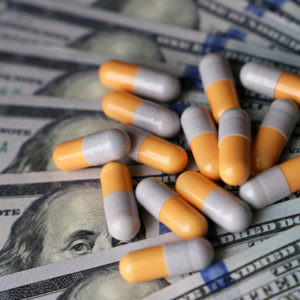The role of middlemen in the high cost of prescription drugs has become a topic of furious discussion and debate over the last several years.
As Americans struggle to pay for healthcare, increased scrutiny has revealed that the companies between the drugmakers and patients are increasing the cost of medicines and keeping treatment options out of reach. Estimates have shown that these companies are costing patients and the American healthcare system billions of dollars.
Among the many profiteers at the center of this crisis, pharmacy benefit managers (PBMs) and the giant companies that administrate drug benefits for health plans may be the worst offenders. These behemoths use a variety of insidious schemes to profit from higher-cost brand drugs while blocking or limiting coverage to lower-cost generic and biosimilar drugs.
By continuing to favor higher-priced brand drugs instead of lower-cost alternatives, they profit at the expense of patients.
Research by the Biosimilars Council and IQVIA reveals the extent and causes of the PBM stranglehold over the biosimilar market that blocks access to lower-priced biosimilar versions of Humira (adalimumab), once the top-selling pharmaceutical globally. According to the analysis, switching adalimumab patients from Humira to biosimilars would save $6 billion for patients and the U.S. health system, but that would mean that PBMs would lose up to 84 percent of their profit.
In the face of such significant profit losses, PBMs have deployed a variety of tactics to block patient savings. And they are working. Not only did Humira prescriptions outnumber biosimilars by 46 to 1 in November 2023, but almost two-thirds of all prescriptions for the lower-priced biosimilars were blocked by the leading PBMs.
Another analysis by Avalere Health on behalf of the Biosimilars Council found that, across the five largest Medicare Part D parent organizations in 2023, biosimilars are substantially less likely to be covered than their reference products. While brand name Humira is covered 99 percent of the time by these plans, lower-priced biosimilars are covered only 6 percent of the time.
While PBMs clearly benefitted by being able to use biosimilar competition to extract larger rebates on the brand Humira, patients are not saving.
Not only are these PBM practices standing between patients and lower prices, but they also threaten the future of lower-cost biosimilar competition. The news that Boehringer is laying off its biosimilar sales force is one more sad reminder of the challenges that lower-priced biosimilars have encountered.
Biosimilars cannot just be a stalking horse to help PBMs gain larger rebates and fees from high-priced brand drugs. Without rapid action by policymakers to end PBM abuses and also to ensure a long-term sustainable biosimilars market, future biosimilar development and competition will undoubtedly be stunted. And, once again, patients will suffer.
Fortunately, there has been progress in Congress to drive reform and put an end to these harmful PBM practices. Bipartisan measures, like the Modernizing and Ensuring PBM Accountability Act, have the potential to drive meaningful change.
This legislation is an important step to protecting patients and expanding access to lower-priced biosimilars.
The promise of biosimilar drugs to expand access to life-changing therapies for the most vulnerable patients is real. If PBMs continue to put profits before patients, that promise will never be fulfilled. Working together to shine a light on these pernicious exploits and drive change, we can help patients access the care they need and generate billions of dollars in savings for the American healthcare system.


